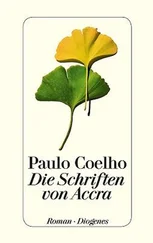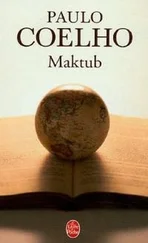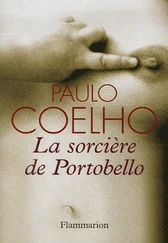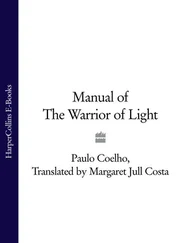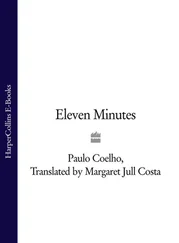A Biography of
PAULO COELHO

For Marina, my companion on yet another crossing of the Rubicon
When the world fails to end in the year 2000, perhaps what will end is this fascination with the work of Paulo Coelho.
Wilson Martins, literary critic, April 1998 , O Globo
Brazil is Rui Barbosa, it’s Euclides da Cunha, but it’s also Paulo Coelho. I’m not a reader of his books, nor am I an admirer, but he has to be accepted as a fact of contemporary Brazilian life.
Martins again, July 2005 , O Globo
Cover
Title Page
Dedication
Epigraph
CHAPTER 1 Paulo today: Budapest – Prague – Hamburg – Cairo
CHAPTER 2 Childhood
CHAPTER 3 Schooldays
CHAPTER 4 First play, first love
CHAPTER 5 First encounter with Dr Benjamim
CHAPTER 6 Batatinha’s début
CHAPTER 7 Ballad of the Clinic Gaol
CHAPTER 8 Shock treatment
CHAPTER 9 The great escape
CHAPTER 10 Vera
CHAPTER 11 The marijuana years
CHAPTER 12 Discovering America
CHAPTER 13 Gisa
CHAPTER 14 The Devil and Paulo
CHAPTER 15 Paulo and Raul
CHAPTER 16 A devil of a different sort
CHAPTER 17 Paulo renounces the Devil
CHAPTER 18 Cissa
CHAPTER 19 London
CHAPTER 20 Christina
CHAPTER 21 First meeting with Jean
CHAPTER 22 Paulo and Christina – publishers
CHAPTER 23 The road to Santiago
CHAPTER 24 The Alchemist
CHAPTER 25 The critics’ response
CHAPTER 26 Success abroad
CHAPTER 27 World fame
CHAPTER 28 Becoming an ‘immortal’
CHAPTER 29 The Zahir
CHAPTER 30 One hundred million copies sold
Plates
Facts About Paulo Coelho
Acknowledgements
Index
Copyright
About the Publisher
CHAPTER 1 Paulo today: Budapest – Prague – Hamburg – Cairo
IT’S A DREARY, GREY EVENING in May 2005 as the enormous white Air France Airbus A600 touches down gently on the wet runway of Budapest’s Ferihegy airport. It is the end of a two-hour flight from Lyons in the south of France. In the cabin, the stewardess informs the passengers that it’s 6.00 p.m. in Hungary’s capital city and that the local temperature is 8°C. Seated beside the window in the front row of business class, his seat belt still fastened, a man in a black T-shirt looks up and stares at some invisible point beyond the plastic wall in front of him. Unaware of the other passengers’ curious looks, and keeping his eyes fixed on the same spot, he raises the forefinger and middle finger of his right hand as though in blessing and remains still for a moment.
After the plane stops, he gets up to take his bag from the overhead locker. He is dressed entirely in black – canvas boots, jeans and T-shirt. (Someone once remarked that, were it not for the wicked gleam in his eye, he could be mistaken for a priest.) A small detail on his woollen jacket, which is also black, tells the other passengers – at least those who are French – that their fellow traveller is no ordinary mortal, since on his lapel is a tiny gold pin embossed in red, a little larger than a computer chip, indicating to those around him that he is a Chevalier of the Legion of Honour. This is the most coveted of French decorations, created in 1802 by Napoleon Bonaparte and granted only at the personal wish of the President of the Republic. The award, which was given to the traveller at the behest of Jacques Chirac, is not, however, the only thing that marks him out. His thinning, close-cropped white hair ends in a tuft above the nape of his neck, a small white ponytail some 10 centimetres long. This is a sikha , the lock of hair worn by Brahmans, orthodox Hindus and Hare Krishna monks. His neat white moustache and goatee beard are the final touch on a lean, strong, tanned face. At 1.69 metres he’s fairly short, but muscular and with not an ounce of fat on his body.
With his rucksack on his back and dying for a cigarette, he joins the queue of passengers in the airport corridor, with an unlit, Brazilian-made Galaxy Light between his lips. In his hand is a lighter ready to be flicked on as soon as it’s allowed, which will not, it seems, be soon. Even for someone with no Hungarian, the meaning of the words ‘ Tilos adohanyzas ’ is clear, since it appears on signs everywhere, alongside the image of a lighted cigarette with a red line running through it. Standing beside the baggage carousel, the man in black looks anxiously over at the glass wall separating international passengers from the main concourse. His black case with a white heart chalked on it is, in fact, small enough for him to have taken it on board as hand luggage, but its owner hates carrying anything.
After going through customs and passing beyond the glass wall, the man in black is visibly upset to find that his name does not appear on any of the boards held up by the drivers and tour reps waiting for passengers on his flight. Worse still, there are no photographers, reporters or television cameras waiting for him. There is no one. He walks out on to the pavement, looking around, and even before lifting the collar of his jacket against the cold wind sweeping across Budapest, he lights his cigarette and consumes almost half of it in one puff. The other Air France passengers go their separate ways in buses, taxis and private cars, leaving the pavement deserted. The man’s disappointment gives way to anger. He lights another cigarette, makes an international call on his mobile phone and complains in Portuguese and in a slightly nasal voice: ‘There’s no one waiting for me in Budapest! Yes! That’s what I said!’ He repeats this, hammering each word into the head of the person at the other end: ‘That’s right – there’s no one waiting for me here in Budapest . No one. I said no one !’
He rings off without saying goodbye, stubs out his cigarette and starts to smoke a third, pacing disconsolately up and down. Fifteen interminable minutes after disembarking he hears a familiar sound. He turns towards it, and his eyes light up. An enormous smile appears on his face. The reason for his joy is only a few metres away: a crowd of reporters, photographers, cameramen and paparazzi are running towards him calling his name, nearly all of them holding a microphone and a recorder. Behind them is a still larger group – his fans.
‘Mister Cole-ro! Mister Paulo Cole-ro!’
This is how Hungarians pronounce the surname of the Brazilian author Paulo Coelho, the man in black who has just arrived in Budapest as guest of honour at the International Book Festival. The invitation was a Russian initiative, rather than a Brazilian one (Brazil doesn’t even have a stand), Russia being the guest country at the 2005 festival. Coelho is the most widely read author in Russia, which, with 143 million inhabitants, is one of the most populous countries in the world. Along with the reporters come people bearing copies of his most recent success, The Zahir , all open at the title page, as they step over the tangle of cables on the ground and face the hostility of the journalists, simply to get his autograph. The flashbulbs and the bluish glow from the reflectors cast a strange light on the shaven head of the author, who looks as if he were on the strobe-lit dance floor of a 1970s disco. Despite the crowd and the discomfort, he wears a permanent, angelic smile and, even though he’s drowning in a welter of questions in English, French and Hungarian, he appears to be savouring an incomparable pleasure: world fame. He is in his element. Mister Cole-ro with his sparkling eyes and the sincerest possible smile is once again Paulo Coelho, superstar and a member of the Brazilian Academy of Letters, whose books have been translated into 66 languages and dialects across 160 countries. He is a man accustomed to receiving a pop star’s welcome from his readers. He tells the journalists that he has been to Hungary only once, more than twenty years before. ‘I’m just afraid that fifteen years of capitalist tourism may have done Budapest more harm than the Russians did in half a century,’ he says provocatively, referring to the period when the country was part of the former Soviet Union.
Читать дальше



